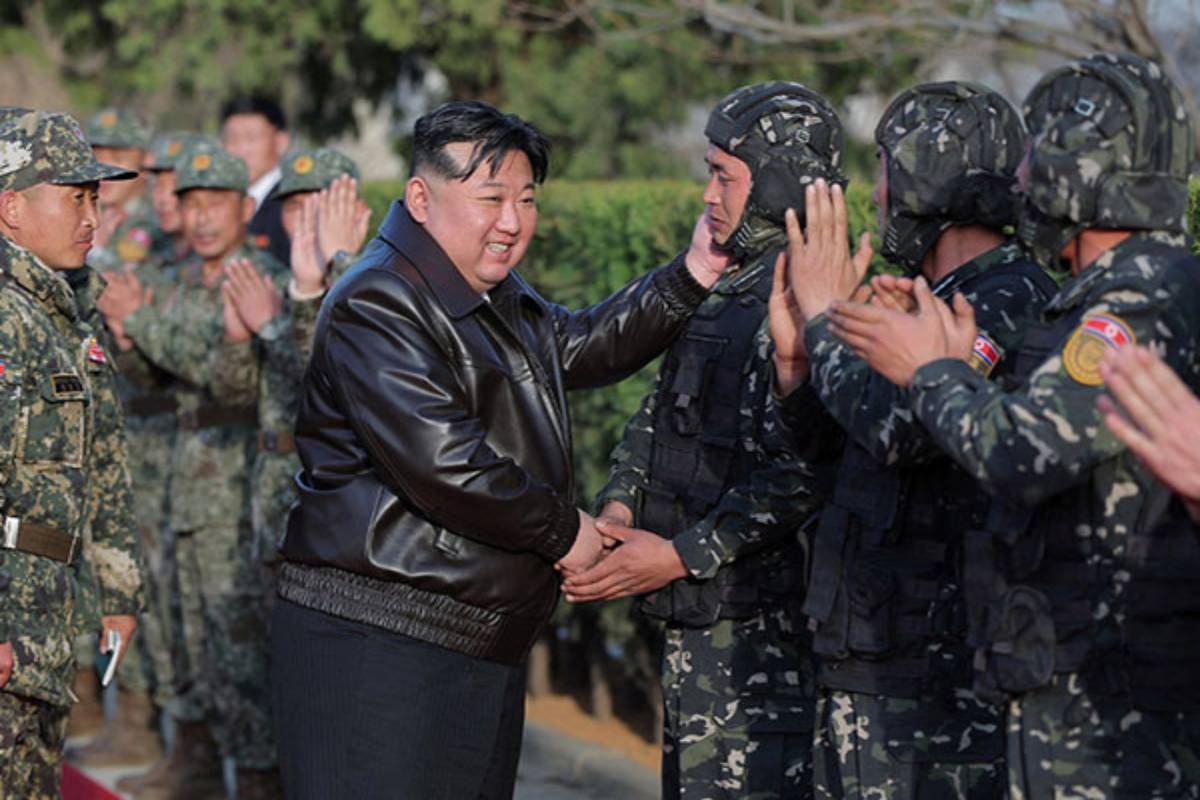North Korea on Tuesday launched an intermediate-range ballistic missile (IRBM) toward the Sea of Japan on Tuesday, with the projectile falling into waters outside Japan’s exclusive economic zone, according to Japan’s Defence Ministry, Kyodo news reported.
Kyodo news citing the ministry said that a missile was fired from North Korea’s west coast at 6:52 a.m. and there were no reports of damage to aircraft or vessels.
This marks North Korea’s third ballistic missile launch of the year, Yonhap reported.
The missile, which South Korea’s military officials suspect was equipped with a hypersonic warhead flew about 600 kilometers before landing in the East Sea, the Seoul-based news agency said.
South Korea’s Joint Chiefs of Staff said that it detected the launch from the area of the North Korean capital Pyongyang on Tuesday at 6.53 am (21:53 GMT on Monday).
“We have stepped up monitoring and are closely sharing relevant information with the US and Japan,” they added.
Confirming the launch of missile, Tokyo urged the coastguard vessels to be vigilant and report any fallen objects without approaching them.
Japanese Prime Minister Fumio Kishida condemned the launch, telling reporters North Korea had “repeatedly launched ballistic missiles” this year, adding that it was a threat to regional security and “absolutely unacceptable”.
The launch was the third of a ballistic missile in 2024, with North Korea saying it is testing a new intermediate-range hypersonic missile powered by a solid-fuel engine.
It comes just days after a Russian veto ended United Nations expert monitoring of North Korean sanctions violations, amid a probe into alleged arms deals between Moscow and Pyongyang, and a week before South Korea holds general elections, Al Jazeera reported.
“The Kim regime prioritizes advancing its military capabilities and doesn’t care to stay quiet during the South Korean legislative election campaign,” Leif-Eric Easley, a professor at Ewha University in Seoul, wrote in emailed comments.
“But firing an intermediate-range missile lacks the shock value of a full-range ICBM [intercontinental ballistic missile] launch or a nuclear test, so it’s unlikely to swing any National Assembly seats. Although Pyongyang’s weapons development remains a major concern, Seoul is currently focused on health care reform, economic policies, and domestic political scandals.”
Pyongyang has continued to develop its military arsenal despite strict international sanctions imposed over its nuclear weapons programme.
It has also declared South Korea its “principal enemy”, shut down agencies dedicated to reunification and outreach, and threatened war over “even 0.001 mm” of territorial infringement.
Last month, the United States and South Korea staged one of their major annual joint military exercises, prompting angry retorts and live-fire drills from Pyongyang, which condemns all such exercises as rehearsals for invasion.
According to the Al Jazeera report, Seoul is one of Washington’s key regional allies and the US has about 27,000 soldiers stationed in South Korea.





